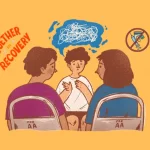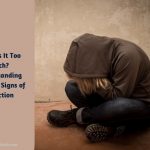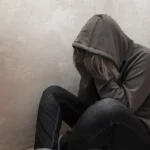
When you’re in recovery, it can seem like there are dangers lurking everywhere you turn.
And although you can’t always avoid dangerous situations, you can keep an eye on the danger signs within yourself. These are early warning signs of weakness that can signal an impending relapse.
Get in touch with yourself, recognize the dangers and you may be able to address them before they turn to relapse.
Here are a few common danger signs to look out for during recovery.
Romanticizing addiction
If you start thinking back on your substance abuse days with nostalgic feelings, it’s a red flag that you may be approaching a relapse. In recovery, it’s important to prioritize your sobriety above all.
When your focus begins shifting from thinking positively about being sober to thinking fondly about being under the influence, you may risk falling back on old habits.
This is what experts call a mental relapse. You may not be physically taking a drug, but in a way, you are fantasizing about it.
Showing disdain for the process
The recovery process is far from sunshine and rainbows, but for a recovering addict, it’s a lifeline.
You don’t have to be excited about every step of the way, but if your attitude changes from being overwhelmingly positive to overwhelmingly negative, it’s not a good sign for your sobriety.
This is something you may be able to notice on your own, but if you’re concerned, ask people you interact with daily.
Find out whether they think you’ve been especially down on the recovery process lately. And if so, it may be time for a change.
Reach out to your sober supports or start attending more group meetings. Do what you can to recharge your faith in the process, so you don’t spiral towards a relapse.
Feelings of Depression
People who are depressed are much more likely to relapse or to abuse substances in the first place.
Depression is likely to drive people towards self-medication, which means they’ll use drugs and/or alcohol to combat their negative feelings.
But since substance abuse leads to depression, this is a vicious cycle that’s difficult to break.
If you’ve already struggled with substance abuse and are in recovery, it’s important to take any signs of depression very seriously. Both depression and substance abuse can put you at greater risk for suicide, so it can become a matter of life and death.
If you’re recovering from substance abuse and are experiencing untreated depression, talk to someone about what’s going on.
Depression may trick you into inaction, but your recovery and wellness are at stake. Take action before it’s too late.
Feelings of exhaustion
If you’re feeling especially tired, you may be more likely to relapse. Sleep is very closely connected to physical and emotional wellbeing, and if you aren’t sleeping enough, your sobriety may be at risk.
In order to avoid this relapse trigger, make sure you’re not overdoing it during the day and do what you can to get to sleep at a reasonable time.
Having a daily routine while in recovery can really help keep you on track. Set a bedtime and awaking time to ensure you have enough time to sleep at night.
And try some relaxation techniques before bed to help you sleep through the night. Insomnia can be a side effect of recovery, so if you are really having trouble sleeping, talk to your doctor for recommendations.
Dangerous behavior
If you suddenly have the urge to hang out at your old haunts and spend time with people who are abusing drugs and alcohol, you may be headed towards a relapse.
Depending on where you are in your recovery, you may be able to spend some time around people who are drinking alcohol socially, but if you’re struggling with urges to head to your local bar or pub, don’t mess around.
Even if you think you’re strong enough to handle it, the desire to go to a place where drinking alcohol is the main form of entertainment is a red flag that relapse is near. Talk to your counselor or sober support to help you get through this period.
What if you relapse?
If you do relapse, understand that there’s still hope. It’s important to be kind to yourself and practice patience. You don’t have to let one moment of weakness define you. If you do relapse, talk to a professional and get back into your recovery plan.
Recovery isn’t a straight line. Everyone has moments of personal struggle where relapse almost seems appealing. But if you’re noticing danger signs in your own life, it’s time to take action.
It’s much more difficult to pull yourself back. Even though it may not seem appealing to reach out for help, it’s a lot easier to handle doubtful feelings and triggers now.
About The Author:
Rachel is a freelance content writer located in San Diego, California. Over the course of her career, she has written a variety of health, parenting, and fitness articles. In her free time, she enjoys running along the beach with her two puppies and practicing yoga.




